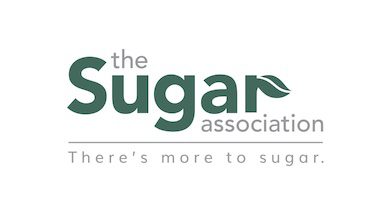
November 21, 2017
First and foremost, let’s be clear that the article we are discussing is not actually a study, but a perspective: a collection of speculations and assumptions about events that happened nearly five decades ago, conducted by a group of researchers and funded by individuals and organizations that are known critics of the sugar industry. It is also important to point out that the authors of this paper did not reach out to the Sugar Association to verify any of their assumptions.
However, given the sugar industry’s commitment to transparency, we reviewed our research archives and found documentation that the study in question ended for three reasons, none of which involved potential research findings: the study was significantly delayed; it was consequently over budget; and the delay overlapped with an organizational restructuring with the Sugar Research Foundation becoming a new entity, the International Sugar Research Foundation. There were plans to continue the study with funding from the British Nutrition Foundation, but, for reasons unbeknown to us, this did not occur.
Throughout its history, the Sugar Association has embraced scientific research and innovation in an attempt to learn as much as possible about sugar, diet and health. We know that sugar consumed in moderation is part of a balanced lifestyle,1,2,3 and we remain committed to supporting research to further understand the role sugar plays in consumers’ evolving eating habits. The bottom line: the Sugar Association will always advocate for and respect any comprehensive, peer-reviewed scientific research that provides insights and aids in our understanding of the role food and nutrition serve in our lives.
_______________________________
(1) U.S. Department of Health and Human Services and U.S. Department of Agriculture. 2015-2020 Dietary Guidelines for Americans. 8th Edition. December 2015. Available at https://www.dietaryguidelines.gov/about-dietary-guidelines/previous-editions/2015-dietary-guidelines
(2) American Academy of Pediatrics. Policy Statement: Snacks, Sweetened Beverages, Added Sugars, and Schools. Pediatrics. 2015:135(3):575-583
(3) Goldfein KR, Slavin JL, Why Sugar is Added to Food: Food Science 101. Comprehensive Reviews in Food Science and Food Safety. 2015:14:644-656.

October 15, 2025
WASHINGTON D.C. | OCTOBER 15, 2025 – The Sugar Association is marking National Real Sugar Day today by celebrating the gold standard of sweetness – real sugar! This year’s celebration highlights real sugar’s unique story and its deep roots, from farms to family favorites. Real sugar’s roots go back thousands of years, as one of […]

January 14, 2025
January 14, 2025 (Washington, D.C.) – The following reaction statement is attributable to Sugar Association President and CEO Courtney Gaine, PhD, RD: “The Sugar Association supports transparency, but this draft label offers only the illusion of transparency – it entirely leaves out total calories and the use of industrial additives like artificial sweeteners. In fact, […]

December 19, 2024
December 19, 2024 (Washington, D.C.) – The following reaction statement is attributable to Sugar Association President and CEO Courtney Gaine, PhD, RD: “The Sugar Association supports the Dietary Guidelines recommendation to limit added sugars to 10% of total calories, but the new “healthy” definition goes well beyond that recommendation and arbitrarily excludes many foods containing […]
© 2026 The Sugar Association, Inc. All rights reserved.
Get Social with #MoreToSugar